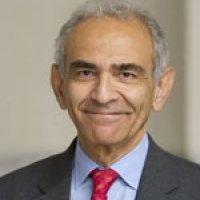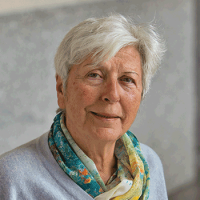Anatomy of Authoritarianism in the Arab Republics
Joseph Sassoon, author of Anatomy of Authoritarianism in the Arab Republics, shared his analysis of authoritarian regimes in eight Arab republics through the lens of 130 memoirs of senior officials and political opponents.
On March 4, 2016, the Middle East Program at the Woodrow Wilson Center hosted the event “Anatomy of Authoritarianism in the Arab Republics” with Sassoon, also Associate Professor at Georgetown University and former Fellow at the Wilson Center, and discussant Marina Ottaway, Middle East Fellow at the Wilson Center. Henri J. Barkey, Director of the Middle East Program at the Woodrow Wilson Center, moderated the event.
Sassoon provided an overview of the introduction of his book and expressed his intention to widen the understanding of the authoritarian and coercive systems that have persisted in Egypt, Syria, Algeria, Iraq, Yemen, Sudan, Libya, and Tunisia.
In explaining his methodology, Sassoon noted how archives of authoritarian Arab regimes have been inaccessible and absent. Therefore, Sassoon relied on memoirs of members within the system for a holistic understanding of the dynamics at work. Sassoon examined memoirs of internal political leaders, security agency chiefs, party members, and generals. He also studied the experiences of those outside the system, including political opponents and political prisoners. Sassoon highlighted that while there are certainly academic shortcomings to memoirs in terms of the reliability of information, ultimately memoirs can “partially bridge the gap by revealing the inner functioning of organizations such as the military or the security forces.” Moreover, memoirs also offer insights into the thinking of the leaders of these countries as well as their relationships with their associates.
Sassoon’s book, organized in a thematic fashion, addresses a wide variety of questions surrounding the political regimes in these eight countries in order to discover commonalities and dissimilarities between them. In his book, Sassoon explored the operations of the regimes, the role of the ruling party in multi-party systems, the use of repression and violence to control opposition, the process of executive decision-making, economic planning, and the cult of personalities of the leaders in power. Sassoon argued “the eight republics have far more in common than was previously envisaged” in their authoritarian structures.
Sassoon outlined five key observations from his analysis of the memoirs: a lack of both accountability and willingness by leaders and senior officials to admit failure or bad policies, the presence of fear and its impact on the actions of those serving these regimes, the regime’s improper analysis of the massive quantity of information gathered by security services about citizens, the “politics of memory,” and political leaders’ lack of attention to economic issues. Sassoon concluded his remarks by stressing that due to the implications authoritarian systems have for future generations, a commitment to furthering our understanding of these structures must continue.
Ottaway commended Sassoon on his use of memoirs for his analysis, noting how memoirs are not only revealing to the world but also to the authors themselves as they progress through their experiences. She also emphasized how the regimes currently in place possess the same authoritarian structures as they did prior to the 2011 uprisings and have therefore not reached a post-authoritarian phase.
By Nishaat Shaik, Middle East Program
Speakers

Professor, Georgetown University

Former Senior Research Associate and Head of the Middle East Program, Carnegie Endowment for International Peace

Senior Fellow, Council on Foreign Relations
Hosted By

Middle East Program
The Wilson Center’s Middle East Program serves as a crucial resource for the policymaking community and beyond, providing analyses and research that helps inform US foreign policymaking, stimulates public debate, and expands knowledge about issues in the wider Middle East and North Africa (MENA) region. Read more
